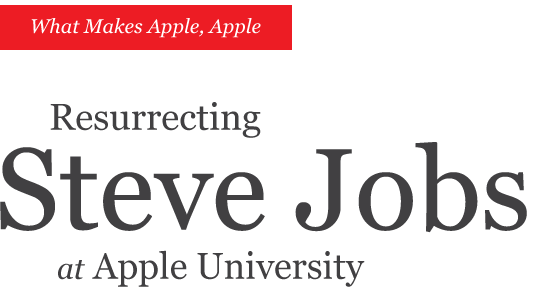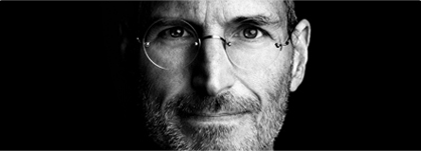
 By Ashish Jaiswal
By Ashish Jaiswal
It was some time during October 2008 when an unexpected email from the President of Yale University took its staff and students by surprise. Joel Podolny, the star Dean of Yale's business school who had recently moved from Harvard, was to abruptly resign. Although the email plainly stated that Podolny was leaving Yale to lead 'educational initiatives at Apple', it became clear that he was personally requested by none other than Steve Jobs to lead one of his most secretive and ambitious dreams – the 'Apple University'. I was a visiting research scholar at Yale during that time, studying Yale School of Management's big curricular reform program. And my interviews and observations were clearly revealing Podolny's highly successful display of academic leadership, an extreme rarity in academia. Thus, the Apple University project must be a tremendous opportunity to be able to pull out a brilliant leader from the middle of one of the most critical transformations being tried in business education.
The media scampered around for months trying to find details about Apple University, especially because of the timing: Jobs' health was fading and the news about his liver transplant had been confirmed. But the efforts of media to find anything worth reporting were in vain. Oddly, Apple has always refused to comment on Apple University and attempts by the media to interview Podolny have been swiftly declined. As bizarre as it may sound for a project of its kind, the Apple University has virtually no digital footprint. It does not even have a website of its own or otherwise, never mind an official Twitter handle or a Facebook page.
Nevertheless, to those who kept following its progress, it was revealed through inside sources that for years Jobs had been planning a program that would perhaps be able to teach its future leaders to think 'like Steve' so that Apple could keep creating innovative products the 'Jobs way'. Thus, Apple University was an attempt to enable Steve Jobs to be replicated; albeit, to the disappointment of sci-fi movie buffs or to the followers of advancements in neurosciences, it is not to be in a lab hidden beneath Antarctican ice cover where Jobs' brain is secretly kept alive to be transplanted in a bionic body in the distant future, as some of his followers may have wished,. Apple University simply exists inside the Cupertino campus in California.
Indeed, Steve Jobs wanted to set up a mechanism where Apple could study itself. He was personally involved in setting up a course called 'What Makes Apple Apple' to codify the DNA of Apple as detailed in 'Inside Apple' by Adam Lashinsky. Importantly, in keeping with the rebellious spirit of Jobs, Apple University is not to be a 'university' in the traditional sense nor, it seems, is it to be similar to the other corporate initiatives such as that of GE or McDonald's Hamburger University
McDonald's Hamburger University which are rather in-house corporate training centers for mass employees. It is also different in its mandate from Pixar University, which mainly focuses on the craft of filmmaking and fine arts. Notably, Apple is more of an exception in having more than 1000 people in leadership positions in a company with around 80,000 employees. That is an exceptional assemblage of so many leaders, especially at a place that is renowned for its creative capabilities. These 1000-odd leaders are exactly where Apple University looks to instill the Jobian tenets. Steve Jobs often highlighted that creativity is an outcome of diversified experiences connecting together. Interestingly, Apple's recent hiring of several ex-CEOs from diverse industries indicates a Jobs-like move to give birth to the next best product by synthesizing diverse experiences.
However, and this is the key epistemological question, did Jobs truly believe that it is possible to recreate geniuses inside a classroom? It is rather oxymoronic that someone who dropped out of university, who once said, 'when you ask creative people how they did something, they feel a little guilty because they didn't really do it' and who despised isomorphic MBAs, would spend the last months of his life in trying to set up an assembly line of creative leaders. Perhaps, the quest to keep oneself alive is imprinted on the human DNA. Apple University is the elixir that Steve Jobs drank in his final moments. Only time will tell whether Apple has attained eternity through its creator's attempts.
A version of this article first appeared in The Hindu Businessline.

http://www.thehindubusinessline.com/opinion/creating-more-jobs/article6108124.ece

(The writer is a doctorate from University of Oxford and an Associate Fellow at Oxford Center for Higher Education Policy Studies)
www.ashishjaiswal.com

